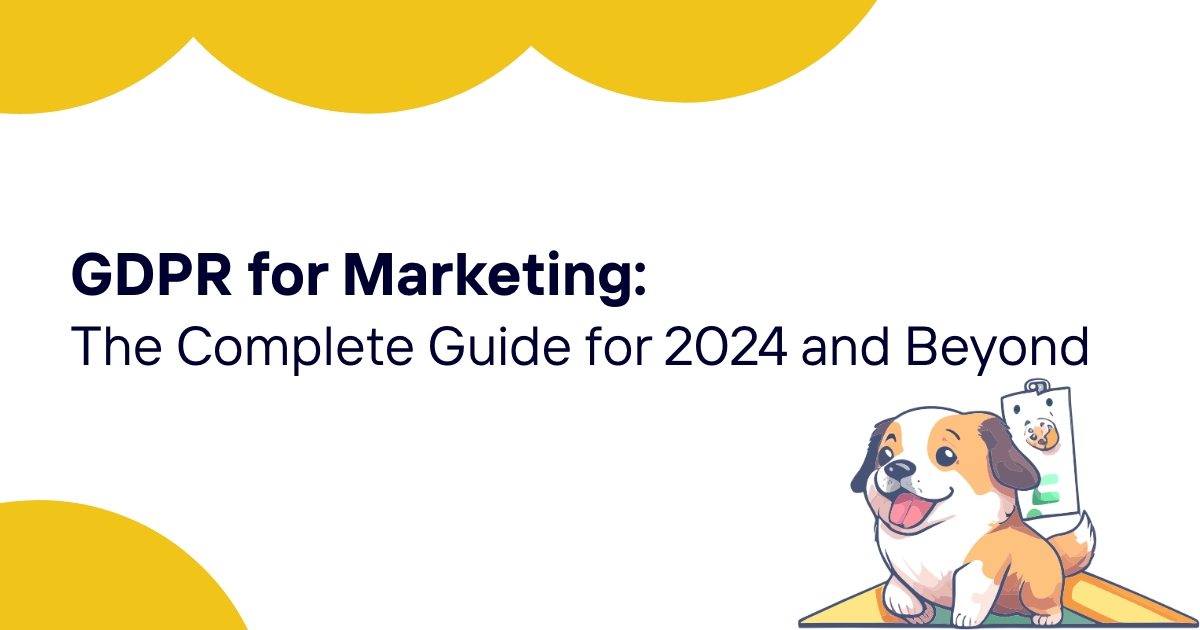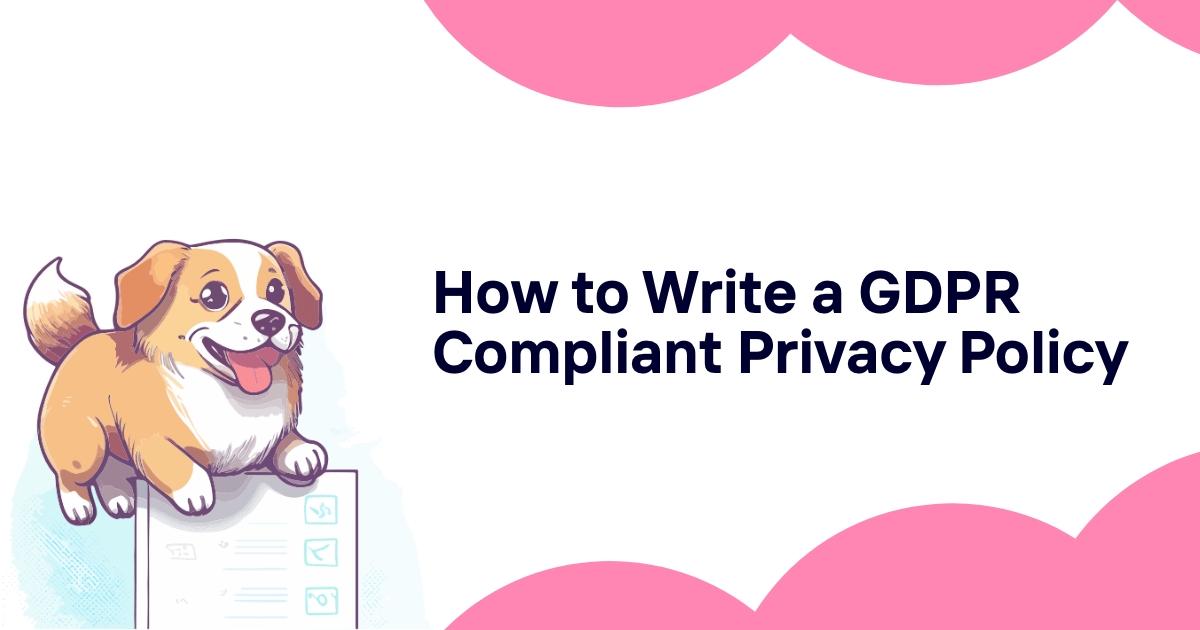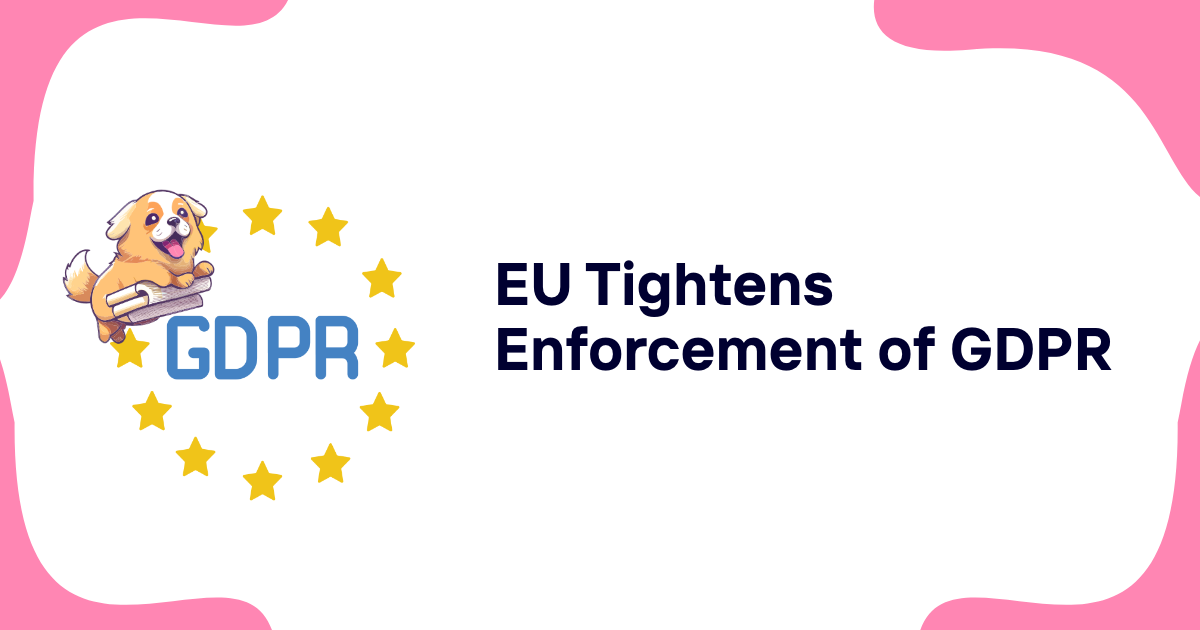Introduction
The General Data Protection Regulation (GDPR) has fundamentally changed how companies handle personal data, especially when it comes to marketing activities. While GDPR compliance may seem daunting at first, it presents an opportunity for marketers to build trust with their audience and deliver more personalized, relevant campaigns.
This comprehensive guide will walk you through everything you need to know about GDPR for marketing in 2024 and beyond. We'll cover the key principles, practical compliance steps, and strategies to thrive in the age of data privacy. Whether you're new to GDPR or looking to refine your existing practices, this guide will help you navigate the complexities and leverage data protection as a competitive advantage.
Table of Contents
- What is GDPR and Why Does it Matter for Marketers?
- Key GDPR Principles for Marketing
- Obtaining Valid Consent
- Data Subject Rights and Marketing
- GDPR-Compliant Marketing Tactics
- Email Marketing and GDPR
- Social Media Marketing and GDPR
- Website Analytics and Tracking
- Third-Party Data and GDPR
- Data Protection Impact Assessments
- Building a Privacy-First Marketing Culture
- GDPR Compliance Checklist for Marketers
- Common GDPR Pitfalls in Marketing
- The Future of Privacy and Marketing
1. What is GDPR and Why Does it Matter for Marketers?
The General Data Protection Regulation (GDPR) is a comprehensive data protection law that came into effect in May 2018. It applies to any organization processing the personal data of individuals in the European Union, regardless of where the organization is based.
For marketers, GDPR matters because:
- It regulates how personal data can be collected, used, and stored
- It gives individuals more control over their personal information
- Non-compliance can result in hefty fines (up to €20 million or 4% of global turnover)
- It impacts nearly every aspect of digital marketing, from email campaigns to analytics
GDPR isn't just about avoiding penalties – it's an opportunity to build trust with your audience and differentiate your brand through responsible data practices.
2. Key GDPR Principles for Marketing
To ensure GDPR compliance in your marketing efforts, it's crucial to understand and apply these core principles:
-
Lawfulness, fairness, and transparency: Only process personal data in a lawful, fair, and transparent manner.
-
Purpose limitation: Collect data for specified, explicit, and legitimate purposes. Don't use it for incompatible purposes.
-
Data minimization: Only collect and process data that's necessary for your stated purposes.
-
Accuracy: Ensure personal data is accurate and kept up to date.
-
Storage limitation: Keep personal data only for as long as necessary.
-
Integrity and confidentiality: Process data securely, protecting against unauthorized access or accidental loss.
-
Accountability: Be able to demonstrate compliance with these principles.
Applying these principles to your marketing activities will help you stay compliant and build trust with your audience.
3. Obtaining Valid Consent
Consent is a cornerstone of GDPR-compliant marketing. Here's what you need to know:
What constitutes valid consent:
- Freely given
- Specific
- Informed
- Unambiguous
- Active (no pre-ticked boxes)
Best practices for obtaining consent:
- Use clear, plain language
- Explain how you'll use the data
- Make it easy to withdraw consent
- Keep records of consent
- Regularly review and refresh consent
Example consent statement:
"By ticking this box, you agree to receive our monthly newsletter and product updates via email. We'll use your email address solely for this purpose. You can unsubscribe at any time using the link in our emails or by contacting us."
Remember, consent is just one of six lawful bases for processing personal data under GDPR. Depending on your specific marketing activities, you may be able to rely on other bases like legitimate interests.
4. Data Subject Rights and Marketing
GDPR grants individuals (data subjects) specific rights regarding their personal data. Marketers must be prepared to handle requests related to these rights:
- Right to be informed: Provide clear information about data collection and use.
- Right of access: Give individuals a copy of their personal data upon request.
- Right to rectification: Correct inaccurate or incomplete data.
- Right to erasure: Delete personal data when requested (with some exceptions).
- Right to restrict processing: Limit how you use an individual's data.
- Right to data portability: Provide data in a machine-readable format.
- Right to object: Stop processing data for direct marketing when requested.
- Rights related to automated decision-making: Provide human intervention for significant automated decisions.
To handle these rights effectively:
- Create clear procedures for data subject requests
- Train your marketing team on these rights
- Ensure your systems can easily locate and modify individual data
- Document all requests and actions taken
5. GDPR-Compliant Marketing Tactics
Embracing GDPR doesn't mean abandoning effective marketing – it means evolving your tactics. Here are some GDPR-compliant approaches:
-
Permission-based marketing: Focus on building opt-in audiences who genuinely want to hear from you.
-
Content marketing: Create valuable content that attracts and engages your target audience without requiring personal data.
-
Contextual advertising: Target ads based on content rather than personal data.
-
First-party data strategies: Collect data directly from your audience through surveys, feedback forms, and account creation.
-
Privacy-friendly analytics: Use tools that respect user privacy and anonymize data.
-
Transparent communication: Be open about your data practices and how they benefit customers.
-
Preference centers: Give users granular control over their communication preferences.
-
Data minimization in forms: Only ask for essential information in your marketing forms.
By focusing on these tactics, you can build trust, improve engagement, and stay compliant with GDPR.
6. Email Marketing and GDPR
Email marketing remains a powerful tool, but GDPR has changed the rules of engagement. Here's how to ensure your email marketing is compliant:
-
Obtain explicit consent: Use double opt-in processes and clear consent language.
-
Provide an easy unsubscribe option: Include a visible unsubscribe link in every marketing email.
-
Maintain accurate records: Document when and how consent was obtained for each subscriber.
-
Segment your lists: Ensure you're only sending relevant content based on user preferences.
-
Regular list cleaning: Remove inactive subscribers and those who have unsubscribed promptly.
-
Be transparent about data usage: Clearly explain how you'll use email addresses and any other collected data.
-
Limit data collection: Only ask for information you truly need for your email marketing efforts.
-
Secure your email lists: Implement strong security measures to protect subscriber data.
Remember, under GDPR, you generally need consent for B2C email marketing. For B2B, you may be able to rely on legitimate interests in some cases, but it's often safer to obtain consent.
7. Social Media Marketing and GDPR
Social media platforms collect vast amounts of user data, making GDPR compliance crucial for social media marketing. Here's how to navigate this landscape:
-
Use platform-provided tools: Leverage built-in GDPR-compliant features for advertising and audience targeting.
-
Be cautious with custom audiences: Ensure you have the right to use email lists for ad targeting.
-
Transparency in ads: Clearly label sponsored content and explain why users are seeing your ads.
-
User-generated content: Obtain permission before using user content in your marketing.
-
Social plugins on your website: Inform visitors about data sharing with social platforms.
-
Data from social listening: Be careful not to process personal data from public social media posts without a lawful basis.
-
Privacy settings: Regularly review and update privacy settings on your business social media accounts.
-
Cross-border data transfers: Be aware of data transfer regulations when using non-EU based platforms.
By following these guidelines, you can harness the power of social media marketing while respecting user privacy and GDPR requirements.
8. Website Analytics and Tracking
Website analytics are essential for understanding user behavior, but GDPR adds some complexity. Here's how to approach analytics compliantly:
-
Use privacy-friendly analytics tools: Consider options like Google Analytics 4 with privacy enhancements or privacy-focused alternatives.
-
Implement cookie consent: Obtain user consent before setting non-essential cookies, including analytics cookies.
-
Anonymize IP addresses: Configure your analytics tool to anonymize IP addresses.
-
Limit data retention: Set appropriate retention periods for analytics data.
-
Disable cross-site tracking: Avoid tracking users across different websites unless you have explicit consent.
-
Provide clear information: Explain your use of analytics in your privacy policy and cookie notice.
-
Respect Do Not Track signals: Consider honoring browser Do Not Track settings.
-
Regular audits: Periodically review your analytics setup to ensure ongoing compliance.
Remember, while analytics are valuable, they must be balanced with user privacy rights under GDPR.
9. Third-Party Data and GDPR
Many marketers rely on third-party data, but GDPR has significant implications for this practice:
-
Due diligence: Verify that any third-party data providers are GDPR compliant.
-
Transparency: Inform users if you're using third-party data in your marketing.
-
Lawful basis: Ensure you have a valid legal basis for processing third-party data.
-
Data minimization: Only use third-party data that's necessary for your marketing purposes.
-
Data subject rights: Be prepared to handle data subject requests related to third-party data.
-
Contractual safeguards: Have clear agreements with data providers covering GDPR responsibilities.
-
Regular audits: Periodically review your use of third-party data for compliance.
-
Consider alternatives: Look into building first-party data strategies as a more compliant alternative.
While third-party data can be valuable, it's crucial to approach its use cautiously and transparently under GDPR.
10. Data Protection Impact Assessments
For certain high-risk marketing activities, you may need to conduct a Data Protection Impact Assessment (DPIA). This is a process to identify and minimize data protection risks. Consider a DPIA for:
- Large-scale profiling or scoring for marketing purposes
- Processing special category data for marketing
- Using new technologies in marketing campaigns
- Combining multiple datasets for marketing analysis
Steps in conducting a DPIA:
- Identify the need for a DPIA
- Describe the processing
- Consider consultation
- Assess necessity and proportionality
- Identify and assess risks
- Identify measures to mitigate risks
- Sign off and record outcomes
- Integrate outcomes into plan
DPIAs help ensure your marketing activities are compliant and demonstrate your commitment to data protection.
11. Building a Privacy-First Marketing Culture
Creating a privacy-first culture in your marketing team is crucial for long-term GDPR compliance:
-
Leadership commitment: Ensure top-level support for privacy initiatives.
-
Regular training: Provide ongoing GDPR and privacy training for all marketing staff.
-
Privacy by design: Incorporate privacy considerations from the start of any new marketing initiative.
-
Cross-functional collaboration: Work closely with legal and IT teams on privacy matters.
-
Reward compliance: Recognize and incentivize privacy-friendly marketing practices.
-
Open communication: Encourage team members to raise privacy concerns or questions.
-
Privacy champions: Designate privacy advocates within the marketing team.
-
Regular audits: Conduct periodic reviews of marketing processes for privacy compliance.
By fostering a privacy-first culture, you'll not only stay compliant but also build stronger, more trusting relationships with your audience.
12. GDPR Compliance Checklist for Marketers
Use this checklist to ensure your marketing activities align with GDPR requirements:
- Audit all personal data processing in marketing activities
- Establish lawful bases for each type of data processing
- Implement robust consent mechanisms where needed
- Update privacy policies and notices
- Create procedures for handling data subject rights
- Review and update data retention policies
- Implement data minimization practices
- Ensure proper security measures for marketing data
- Establish processes for data breach notification
- Review and update contracts with vendors and partners
- Train marketing staff on GDPR requirements
- Implement privacy by design in marketing processes
- Conduct DPIAs for high-risk marketing activities
- Regularly audit and document GDPR compliance efforts
Regularly revisit this checklist to maintain ongoing compliance.
13. Common GDPR Pitfalls in Marketing
Avoid these common GDPR mistakes in your marketing efforts:
-
Assuming consent: Never assume you have permission to market to someone.
-
Ignoring unsubscribe requests: Promptly honor all opt-out requests.
-
Over-collecting data: Only gather data you genuinely need and will use.
-
Neglecting transparency: Always be clear about how you'll use personal data.
-
Keeping data indefinitely: Implement and stick to data retention policies.
-
Sharing data carelessly: Be cautious when sharing data with partners or vendors.
-
Ignoring privacy in new technologies: Consider privacy implications when adopting new marketing tools.
-
Forgetting about internal data: Apply GDPR principles to employee and B2B data too.
By avoiding these pitfalls, you'll reduce your risk of non-compliance and build trust with your audience.
14. The Future of Privacy and Marketing
As we look ahead, several trends are shaping the intersection of privacy and marketing:
-
Increased regulation: Expect more privacy laws globally, inspired by GDPR.
-
Privacy as a differentiator: Brands that prioritize privacy will gain competitive advantage.
-
AI and machine learning: These technologies will bring new privacy challenges and opportunities.
-
First-party data focus: Marketers will increasingly rely on data collected directly from consumers.
-
Privacy-enhancing technologies: New tools will emerge to help marketers balance personalization and privacy.
-
Decentralized identity: Blockchain and similar technologies may change how personal data is managed.
-
Increased consumer awareness: Expect more scrutiny from privacy-savvy consumers.
-
Ethics in data use: Ethical considerations will play a larger role in marketing decisions.
To thrive in this future, marketers must stay informed, adaptable, and committed to responsible data practices.
Conclusion
GDPR has reshaped the marketing landscape, but it's ultimately an opportunity to build stronger, more trusting relationships with your audience. By embracing privacy-first marketing practices, you can comply with regulations, reduce risks, and differentiate your brand.
Remember, GDPR compliance is an ongoing process, not a one-time effort. Stay informed about regulatory changes, regularly review your practices, and always prioritize the rights and preferences of your audience. With the right approach, you can turn data protection into a powerful marketing advantage.


















